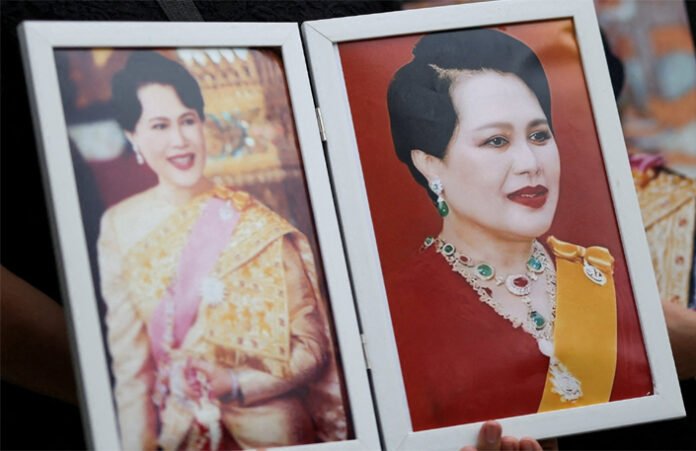The Kingdom of Thailand is in deep mourning as the palace announced the passing of Queen Mother Sirikit, aged 93, on October 24, 2025. AP News+2Al Jazeera+2 The former queen consort — widely admired for her charitable work, cultural patronage and regal elegance — will be remembered as a major figure in Thailand’s modern monarchy.
A Life of Royal Duty and Grace
Born on August 12, 1932, Sirikit Kitiyakara hailed from an aristocratic family and went on to marry King Bhumibol Adulyadej (Rama IX) in 1950, shortly before his coronation. The Guardian+1 Over the years, she assumed not just a ceremonial role but also became a visible patron of rural development, cultural preservation and national identity. Her enduring image as the “royal mother” of the nation was cemented when August 12 became a national holiday (Mother’s Day in Thailand).
Legacy of Service – Rural, Cultural & Environmental
Queen Mother Sirikit’s imprint went well beyond palace life. She actively supported the poor in rural Thailand, backed traditional Thai silk weaving, and helped revive and promote national crafts on the global stage. AP News+1 For example:
She inaugurated and supported the SUPPORT Foundation in the 1970s which aimed to help village women generate incomes and preserve weaving traditions. The Economic Times+1
She travelled extensively with the king to remote provinces, raising the visibility of development issues like hill-tribe welfare, deforestation, opium-addiction in north-Thailand, and environmental conservation. The Guardian
Internationally, she was seen as a “style icon”: while on foreign visits she collaborated with Paris couture (notably Pierre Balmain) and helped raise global awareness of Thai silk. The Guardian
Health and Final Days
In recent years, the Queen Mother’s public appearances became very rare after she suffered a stroke in 2012. Wikipedia+1 The palace confirmed she had been hospitalised since 2019 due to multiple illnesses, and that a bloodstream infection that developed around October 17 preceded her passing in hospital. Reuters Her death, at the age of 93, marks the end of a significant chapter in the Thai monarchy.
National and International Reactions
The Thai government declared a one-year official mourning period for the royal family and royal household. Reuters+1 Prime Minister Anutin Charnvirakul cancelled his planned trip to the Association of Southeast Asian Nations (ASEAN) Summit in Malaysia in light of the royal death — raising questions about whether a cease-fire agreement with neighbouring Cambodia will be signed as scheduled. Reuters The global community of royals, diplomats and cultural watchers have paid tribute to Sirikit’s elegance, influence and public service.
Why Her Passing Matters
Symbolic figure for modern Thailand: While King Bhumibol reigned for seven decades, Sirikit was a complementary figure who redefined royal soft-power through her social and cultural initiatives.
Monarchy’s public image: The Thai monarchy has faced increasing scrutiny in recent years; Sirikit’s legacy of unity, culture and charity serves as a stabilising pillar.
Regional diplomacy and trade: Her passing has immediate diplomatic ripple-effects — Thailand’s leadership will focus on royal funeral arrangements at a time of important external engagements (ASEAN) and regional negotiations.
Cultural heritage & tourism: Sirikit’s patronage of Thai silk, crafts and tourism continues to influence Thailand’s economy and identity.
What Happens Next – Funeral & Transition
With the official mourning period of one year declared, Thailand will observe various rituals, including the royal funeral, special church-services (temple ceremonies) and public tributes. The royal household and government will coordinate the events, likely to draw large domestic and international attention. Many Thais will view this as a moment to reflect on national identity, monarchy and cultural continuity.
Notable Quote
As one foreign journalist put it at the time of her death:
“For many Thais, she will be remembered for her charitable work and a symbol of maternal virtue.” Reuters
Conclusion
Queen Mother Sirikit’s death is not just the passing of a royal figure—it marks a turning point in Thailand’s modern era. Her life of service, cultural advocacy and regal diplomacy leaves a broad legacy. For Thailand — and for those watching Asia’s evolving monarchies — this is both the end of an era and the start of a new chapter. Her memory will live on through the weaving looms of northern Thailand, through the village development centres and the quiet dignity she brought to a changing world.
















